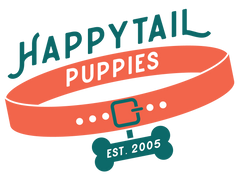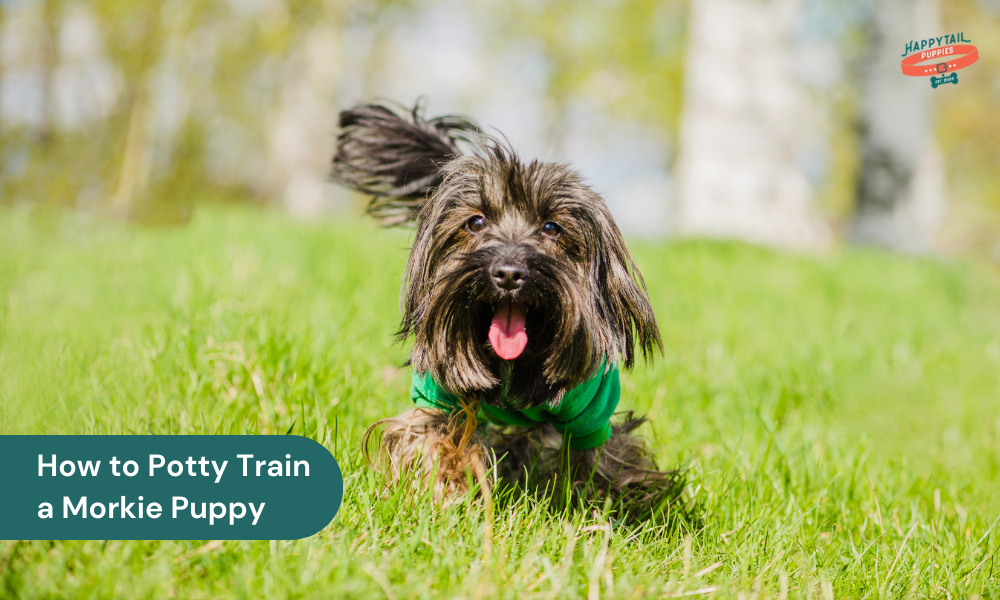How to Potty Train a Morkie Puppy: A Step-by-Step Guide
The Morkie puppies are small dogs with huge personalities. However, they become difficult in terms of training. Luckily, patience and a lot of potty breaks for these small dog breeds can help you succeed in potty training your Morkie. After your Morkie reaches around 10 to 12 weeks of age, it is the time to offer potty training to them. However, it is important to understand how to implement positive teaching methods with these sensitive furry companions of yours. However, knowing how to potty train a morkie involves a lot of time, especially with the Morkies, if you are using a consistent routine while you are on the way to succeed in potty training your pup.
About Morkie Temperament
Understanding the key characteristics of Morkies will help you know that these pups are quite sensitive and can be trained in positive ways. It is important to select a designated spot for your dog to relieve itself and follow this routine. Also, ensure that you give your dog a lot of smaller treats and praise every time your Morkie successfully heads out to its designated potty area.
While selecting any outdoor spot, choose the one that is sheltered to protect your dog from inclement weather. If you wish to train your toy pup to release indoors, then remain consistent with heading out to an indoor grass patch or a puppy pad. So here, you need to know how to train a Morkie to use a puppy pad. It is often best to refrain from initiating training your pup to potty indoors and then change over to outdoors since it appears confusing to their small minds.
Preparation Before Starting Training
The initial step to knowing how to potty train a Morkie Puppy is by initiating with adequate preparation. Having important items such as cleaning supplies, puppy pads, and treats often aids in creating an effective system. Keeping an area fixed for the potty is essential. Few individuals may keep an area in the yard for their furry companion to deal with their job, or the pet parents often select the balcony area for the Chihuahuas or the Toy Poodles living in an apartment.
Having a consistent routine for potty breaks and feeding often lays a strong groundwork for the best morkie training tips. Puppies and other dog breeds like Bichon Frise have small bladders. This means the pet parents need to make frequent trips outdoors, mainly following a meal, naps, or playtime.
Also Read: Tackling Early Behavior Challenges: A Training Guide for Cavapoo Puppies
Best Ways to Potty Train Your Morkie Pup
Before learning more about the entire potty training process, ensure that you create your home in the right way for your Morkie. Creating a good environment can help your Morkie learn about potty training a Morkie easily.
Step 1: Establish a Routine
Following a consistent routine will build a successful foundation for potty training your Morkie. The puppies often thrive whenever they know what to expect by maintaining a Morkie potty training schedule to help them learn rapidly. Initiate by taking your Morkie outdoors as the initial thing you would do in the morning, following meals, and right before bedtime. Small dog breeds such as Havanese and Shih Tzus often benefit from this structure, and Morkies come no different. Ensure to take your puppy out every two to three hours in the daytime to prevent any mishaps or reinforce good habits.
Step 2: Select a Potty Spot
Choosing a specific area in your home for your pup to go potty is important to maintain consistency and overcome one of the major Morkie potty training problems. It can be an area of your yard or any nearby part, and always ensure that you take your pup to the same spot. The scents that are left behind signal back to your pup in this place. Similar to Dachshunds, Morkies often appreciate complete guidance and succeed with positive reinforcement. It is important to stay patient while your puppy starts exploring the spot and offering treats or praises whenever it goes successfully.

Step 3: Use Positive Reinforcement
Like the other small dog breeds like the Toy Poodles, taking proper Morkie puppy care can make them respond successfully to positive reinforcement techniques. It is important to reward your pup immediately after they are relieving themselves outdoors. The verbal praise, treats, and even the favorite toys encourage your Morkies to repeat this behavior. It is important to avoid punishments of all sorts for any mishaps. However, it would help if you aimed towards reinforcing the much-needed behaviors. Any negative reactions would confuse your pup and delay the entire process.
Step 4: Supervise Closely Indoors
When indoors, you should always keep a watch on your pup to prevent Morkie pooping in the house. Small dog breeds like Cavalier King Charles Spaniel are often sneaky, and staying watchful is important. Look out for signs like circling, sniffing, or whining that show that your pup has to go outdoors. You can use a leash indoors that helps you maintain better control and keep your pup in the line of sight. It is the ideal method to ensure that you are guiding your Morkie to your choice of potty spot if required.
Step 5: Introduce Crate Training
Crate training a Morkie is extremely beneficial for potty training and offers your pup a secure and safer space. Similar to French Bulldogs and pugs, Morkies avoid soiling the areas in which they sleep. The right crate size helps your pup hold its bladder until you take it outside.
Also, ensure that the crate is comfortable and manageable. When the pup has any additional space, they use one corner to sleep and the other to relieve themselves. Eventually, increasing the crate time helps your Morkie to get accustomed to it, as you should allow them to take frequent potty breaks.
Also Read: How to Potty Train a French Bulldog: A Step-by-Step Guide
Step 6: Address Nighttime Training
Potty training in the night is often tricky, mainly for toy breeds like Bichon Frise or Morkie. The puppies have small bladder control, so you will often find them waking up once in the night for the initial couple of weeks. Keep the crate near your bed to listen when your puppy has to go out. Over time, the bladder control of the puppies improves, with the nighttime trips becoming less frequent.
Step 7: Handle Accidents Gracefully
The potty training process includes many mishaps. Instead of scolding your pup, it is important to clean up the mess immediately with an enzyme-based cleaner that can remove odors of any kind. This will help prevent your Morkie from coming back to the same spot. Small dog breeds are extremely sensitive to tone, and remaining calm is associated with good results. Also, redirect your pup to the right potty area immediately following an accident.
Step 8: Transition to Outdoor Independence
While your Morkie is becoming more reliable, you should encourage them to let you know whenever they need to relieve themselves outdoors. Hanging a bell right at the door is a good method. Teach your pup how to ring the bell with their paws or noses prior to stepping outdoors. The other small dog breeds are quite fast to learn the cues, and your Morkie follows this suit when you follow a consistent potty training method. With time, your puppy starts to learn about alerting you whenever nature calls.
Step 9: Maintain Consistency Over Time
Consistency is the key to success in potty training your pup. Ensure that you stick to the already established routines and reinforce positive behaviors even once your Morkie is completely trained. Some breeds often regress if there is a change in the routine, so it is important to maintain a good approach. Therefore, celebrate the milestones to make this process filled with a lot of fun for you and your furry companion.
Also Read: Housetraining Your English Bulldog: Tips for Success
Common Challenges and Solutions
Potty training a Morkie or any other small dog breed is often associated with its share of challenges. Identifying the possible difficulties and using the right solutions will help ensure a smooth process for you as well as your pup.
Dealing with Separation Anxiety
Morkies are considered companion dogs who succeed over human interactions like the other small dog breeds like Bichon Frise as well as Cavalier King Charles Spaniel. Any prolonged time alone would eventually lead to separation anxieties resulting in mishaps indoors. Eventually, train your pup to feel more comfortable by staying alone by initiating small periods of separation. Offering them engaging toys such as chew items or treat puzzles that will keep the pups busy. Making use of the crates will create a better sense of security whenever you are away.
Weather-Related Hesitation
Smaller dog breeds, such as Chihuahuas and Morkies, are well-known for their resistance to harsh weather. Snow, rain, and extreme cold will make your pup reluctant to venture outdoors for potty breaks. Ensure your pup has weather-related gear like booties, dog jackets, or an umbrella. On the other hand, create covered areas outdoors or select an indoor area for your pup to go potty using puppy pads, especially on rough weather days.

Distracted Puppies
Morkies similar to the Poodle are, by nature, quite curious. The curiosity will make them get distracted easily by the scents, sounds, or movements outdoors, delaying their potty times. Select a quiet area for the potty breaks to reduce any distractions. Also, shorten the interactions till your puppy is done with their business while rewarding them with playtime or praise later on.
Inconsistent Training Techniques
The potty training is often hindered whenever several family members are using varied types of commands or methods. Consistency is the key, mainly for small dog breeds like Maltese and Dachshunds, who respond the best to clear and repeated instructions. Try ensuring that every household member stays on the same page related to the potty training routines, rewards, and commands. It is a unified approach reinforcing the learning and preventing any confusion for the puppies.
Small Bladders Mean Frequent Breaks
The Morkies, along with other small dog breeds like the Pomeranians, have smaller bladders. This leads to the frequent need for a potty, and missing the window leads to accidents. Set the timers or schedule regular potty breaks every two to three hours. Eventually, start by increasing the time between the breaks while your puppy is maturing and gaining back bladder control.
Regression After Progress
Following the weeks of success, your Morkie occasionally regresses and has indoor accidents. It is extremely frustrating, however, is the normal portion of the training process specifically for small dog breeds like Yorkshire Terriers. Get back into the basic training principles while re-establishing the routine. Try increasing your supervision while reinforcing the positive behavior with praises and treats. Remain patient while your puppy is getting right back onto the track.
Fear of Noise or New Environments
Morkies, Shih Tzus, and Havanese are often sensitive to their surroundings. New spaces, loud noises, or changes in routine cause a lot of stress, leading to mishaps. Eventually, exposing your puppy to different types of environments establishes confidence. Whenever noises become an issue, use desensitization tactics like playing the recording of the sounds at lower volumes in the training sessions.
Household Distractions
Residing in busier households makes potty training extremely tricky. Small dog breeds such as Morkies often struggle with focusing on kids, other pets, or frequent visitors. For potty training success, it is important to create a well-designated, quiet space. This space can help remove distractions and aid your pup in associating this area with the work at hand.
Read More: 15 Best Dog Breeds for First-Time Owners: Friendly & Easy to Train
Final Thoughts
Potty training a Morkie needs a lot of dedication. However, the rewards are well worth it. Knowing about the distinctive requirements of the pup, having a routine, and making use of positive reinforcement can make this entire endeavor smooth. Similar principles apply to other small dog breeds like Bichon Frise proving that consistency and patience lead to better success. Whenever you are on this journey with Morkie or yet another small dog breed, it is time to rejoice over the smaller victories. Such movements often create pathways for a happy, well-trained furry companion who adds joy to your life in the future.


